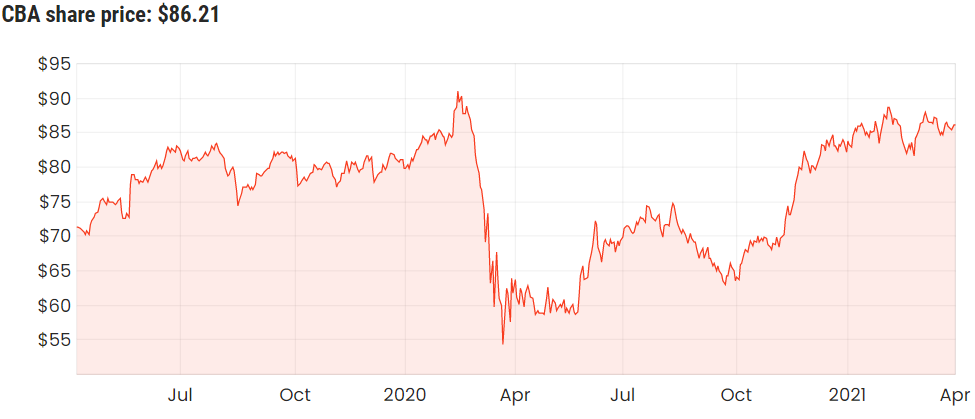The Commonwealth Bank of Australia (ASX: CBA) share price could still be good value even after rising 30% over the last six months.

As you can see, it has been a crazy journey for CBA shareholders since the start of the COVID-19 crash. CBA has essentially recovered back to where it was.
There are some reasons why I think CBA might not be a buy at this stage. It’s already a huge business, so there’s probably not too much growth potential over the long term. There’s a lot of competition in the banking space and some of the smaller banking competitors are getting bigger like Macquarie Group Ltd (ASX: MQG) and Bank of Queensland Limited (ASX: BOQ). I’m not sure what would happen if a big four turned into a big six.
However, there are also a few interesting reasons why CBA could still deliver good returns:
Dividend returns
Some investors don’t really see the value in dividends, but I think they’re important – for banks they could make up half or even more of the return.
With the economic impacts of COVID-19 fading away, CBA’s dividend is expected to climb back towards its previous levels. Looking at the dividend forecast on CommSec for FY22, CBA has a projected fully franked dividend yield of 4% (or 5.8% including the franking credits).
Strong property market
The key part of the CBA business is the loans that it gives out to borrowers for properties. Growth of the loan book is good for profit, whilst higher property prices should mean lower bad debts as well.
Property price growth won’t be this strong forever, particularly if some regulations are introduced to slow down the growth.
However, I think CBA’s loan book and the quality of the bank overall should mean that it’s able to benefit from the current situation. The high level of the common equity tier 1 (CET1) capital ratio also helps the bank in-case there’s any adverse conditions in the future – the CET1 ratio was 12.6% at 31 December 2020.
Rising interest rates?
Interest rates are starting to rise around the world, even if central banks aren’t officially doing anything.
Higher interest rates could help CBA generate more profit if it can increase its net interest margin (NIM) – this is an integral measure of how much profit a bank makes from the money it lends out, versus the cost of it.
There’s so much money sloshing around in the system that CBA doesn’t need to pay much of an interest rate to savers, which is also helping its NIM.
CBA is certainly a blue chip to watch in this environment, but there could also be ASX dividend shares that are worth pursuing.









